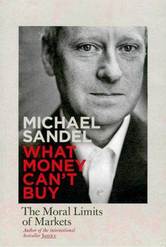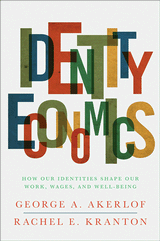In the intervening two months the GAA have sold the broadcast rights to some of their games to pay-TV and Munster rugby have announced that they are considering selling the naming rights to their iconic home (Thomond Park). Plenty has been written about the GAA decision (including on this blog). The Munster announcement will generate plenty of comment over the next few days. Both decisions involve the trading of part of the sport for a monetary return. Some people will react like my son and wonder how the GAA/IRFU could consider such a trade. Others will say that the people involved valued the money more than what they were selling.
When I was reading the Irish Times account of the possibility of selling the naming rights to Thomond Park (here), I thought it was so appropriate that the Head of their Advisory Commercial Board was also chairman of the British Museum. A museum. A place where were we put things from the past like the trees from the Joni Mitchell song. A sports museum might be a place one goes to see sports shirts without logos, stadia without corporate boxes, or low ticket prices that enabled more children to see big games.
Thomond Park is the home of Munster rugby. It now hosts the bigger Munster games while Musgrave Park is the venue for smaller games (but has its name already sold to the Irish Independent). Musgrave Park has also held some of the more memorable games. In 1973 my father took an eight-year-old me to see Munster draw with the New Zealand All-Blacks at that venue. In those days the Munster team was, what some people might claim, a team more representative of Munster - being made up of those eligible to represent the province rather than those contracted to the club for a wage. This was the amateur era where, according to the romantics, people played for the love of the game and the area they represented (the word amateur apparently has it roots in French and Latin words for love).

Sandel is clear about where the blame lies for this increasing commercialisation. The problem is market reasoning. Economics. He discusses the way autographs are sold. He discuss Skyboxes for corporate clients. He discusses Moneyball. He says "Moneyball made baseball more efficient, in the economist's sense of the term. But did it make it better? Probably not."
There is a lot to what Sandel says. Economics does change the way you look at the world. It does change the way you thnk. It is something that I wonder about as a teacher. It is something that I wonder about as a father. Last week my son returned to the issue of selling meteors. He informed me that he now had a slightly different view on the issue. He explained that if he found a meteor that he would not sell it until he was close to the end of his life. He said that before he died he would sell it and give the money to his children. I was left wondering if my response to his earlier question was responsible for a certain loss of innocence.

As we get older we lose some of our innocence. David Conn describes his falling out of love with football and Manchester City when he discovers that fans pay their money to football companies rather than football clubs (see book review section of this blog). But he later found himself drawn back as the oil-rich owner brought City back to some of its original values. It probably also helped that City were on their way back to the summit of English football. A similar thing might be happening to some Liverpool FC fans as they close in on their first title in 25 years.
Around the same time that rugby folk are identifying with the red jersey of Munster, another group of people in Munster will be identifying with the red of Liverpool FC against Chelsea. Amongst those cheering on Liverpool will be a group of economist colleagues of mine. Being from a different country, and being economists, does not stop them using the word "we" when referring to Liverpool FC. It would seem the emotional attachment to their team dominates their rational side! It would seem that their training as economists has not changed them in this regard.
While we lose some innocence as we grow older we hold some values. I have heard fans of other teams saying they would like to see Steven Gerrard win a title. They value the fact that he is a local Liverpool lad who has only played with Liverpool (even if he nearly went to Chelsea). Fans identify with this value. Once a person identifies with a team, usually as an impressionable kid, they remain loyal to that team. It is part of their identity.
Philosophers like Michael Sandel are not the only one to realise that the discipline of economics could do with some improvement. George Akerlof and Rachel Kranton have drawn the attention of the profession to the importance of identity in economics. Our ideas about ourselves matter. It is the "self" in self-interest. If my son wants to define himself as a person who thinks that meteors are priceless then maybe his economist father won't do too much damage.
 RSS Feed
RSS Feed